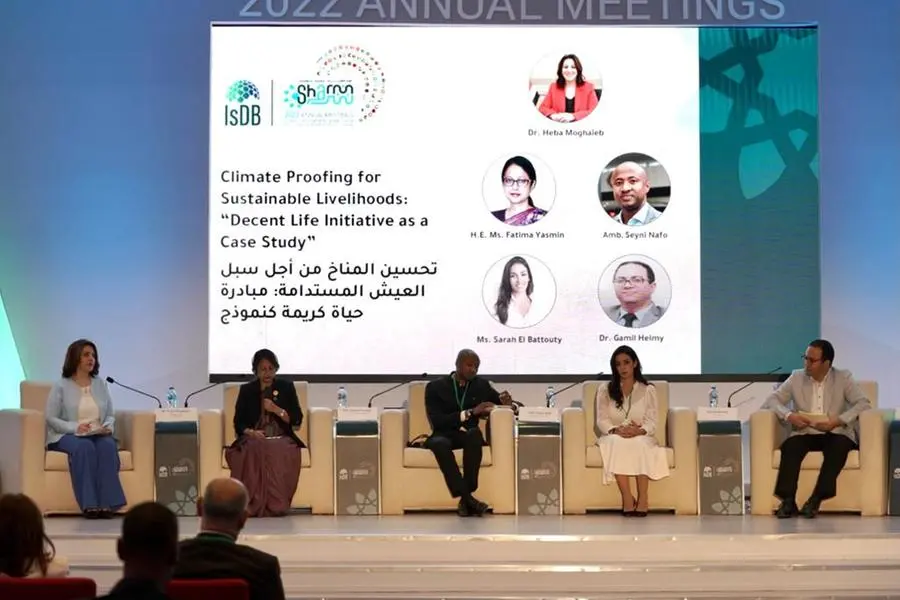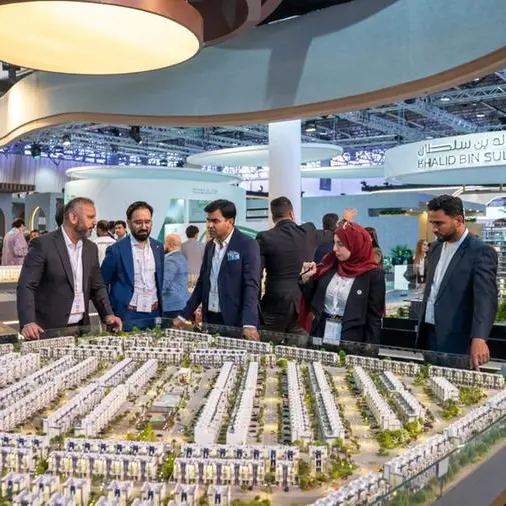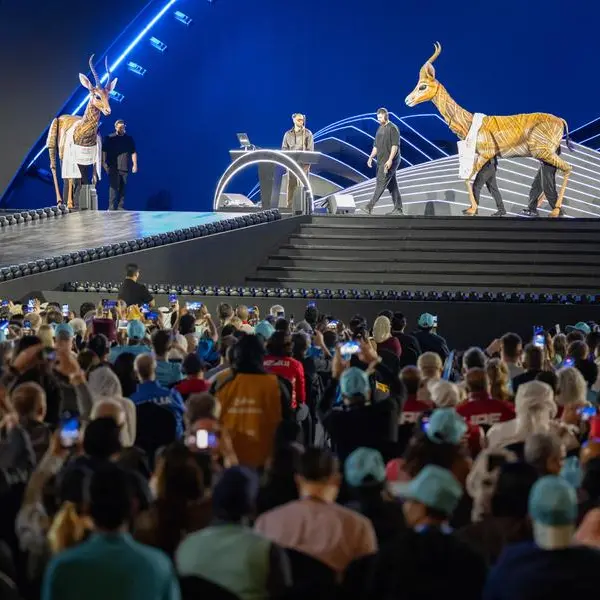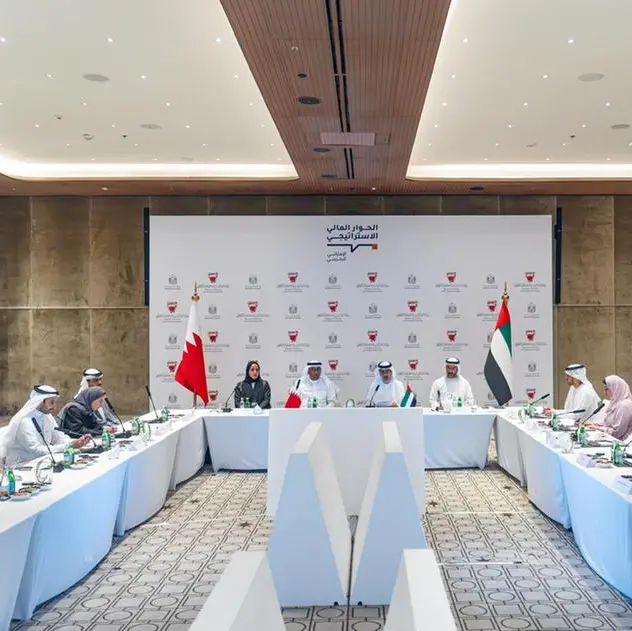PHOTO
Sharm El Shiekh, Egypt: The side events of the Islamic Development Bank (IsDB) Group’s Annual Meetings, in Sharm El-Sheikh, saw the holding of a major session on: “Climate Proofing for Sustainable Livelihoods.”
A keynote speaker at the event was Fatima Yasmin, Secretary of the Economic Relations Departments at the Ministry of Finance in the Government of the People’s Republic of Bangladesh, who stated that recent assessments indicate an alarming increase in climate change complications, and the government of Bangladesh is taking the necessary actions to combat global changes and accelerate achieving economic growth.
She further reiterated that economic development in Bangladesh is mainly dependent on improving the infrastructure to provide basic standards of living, including goods, and investment in human capital.
Fatima Yasmin furthermore referred to the relentless efforts by Her Excellency the Prime Minister of the People’s Republic of Bangladesh, who is working to make the country resilient to climate change and has begun to implement all climate change agreements.
Another keynote speaker was Jamil Helmy Abdel Wahed, Egypt’s Assistant Minister of Planning and Economic Development for Follow-up Affairs who said: “It is critical to have specific environmental standards to meet with the sustainable development strategy,” said.
According to the Assistant Minister, the Arab Republic of Egypt has started a major living campaign named Good Life Initiative to reduce poverty rates and as per the Statistics Authority, the efforts have managed to record reduced poverty rates of nearly 11% in 375 communities over two years. Egypt has 4,600 communities with a population of 58 million people.
Abdel Wahed emphasized that this project is unique in that it is the first to benefit 60% of Egypt's population. The project's target budget has increased in order for it to become one of the world's first initiatives to implement all 17 Sustainable Development Goals.
He explained: "The state is focused on the interconnectedness and integration of the components of sustainable development between the environment, society, and the economy, taking into account the environmental aspects in line with the economic and social repercussions."
Furthermore, the first phase of the Good Life initiative channeled 200 billion Egyptian pounds to about 1,500 communities, with 30% of that going to green initiatives, validating the government's environmental observation at the national, regional, and rural levels.
According to Ambassador Seni Nafo, spokesperson for the African Negotiators Group (AGN), climate change is a multidimensional phenomenon, and Egypt's organization of the COP27 global climate conference will direct the attention of the entire world to the African continent.
He added: "Egypt provides practical steps for climate solutions that will be significant for the entire region. More than US$300 billion in renewable energy globally has been invested since 2008, with solutions for storing energy and green hydrogen. This continent is rich in natural energy, and technology offers many advantages through early warning systems.”
According to Sarah El-Batouty - Founder of ECOnsult and one of the leading Egyptian companies in the field of green business, “If we look at entrepreneurship in the field of climate change, we will discover that there is a huge market opportunity for on-ground projects, with companies requiring significant funds to conduct the necessary research before releasing their products to the market. Thus, it is vital to tailor products according to countries’ efforts in mitigating climate change.”




















